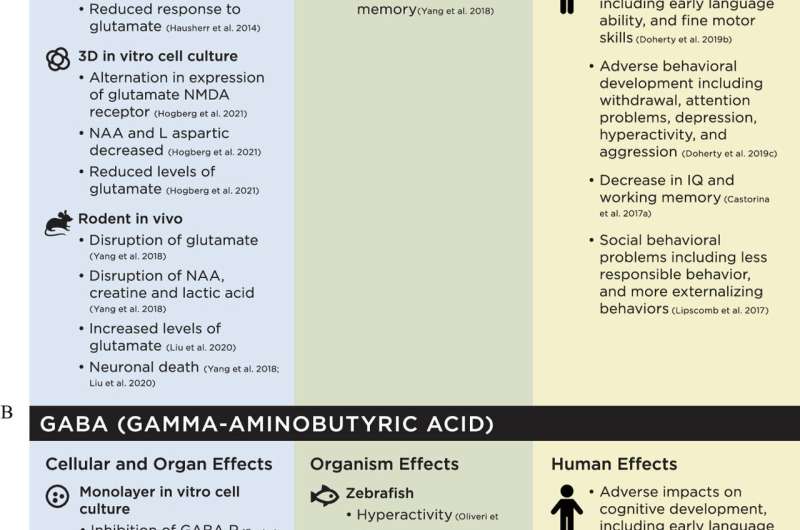Common chemicals in electronics and baby products harm brain development

Chemicals increasingly used as flame retardants and plasticizers pose a larger risk to children’s brain development than previously thought, according to a commentary published today in Environmental Health Perspectives. The research team reviewed dozens of human, animal, and cell-based studies and concluded that exposure to even low levels of the chemicals—called organophosphate esters—may harm IQ, attention, and memory in children in ways not yet looked at by regulators.
The neurotoxicity of organophosphate esters used as nerve agents and pesticides is widely recognized, but the neurotoxicity of those used as flame retardants and plasticizers has been assumed to be low. As a result, they are widely used as replacements for some phased-out or banned halogenated flame retardants in electronics, car seats and other baby products, furniture, and building materials. However, the authors’ analysis revealed that these chemicals are also neurotoxic, but through different mechanisms of action.
“The use of organophosphate esters in everything from TVs to car seats has proliferated under the false assumption that they’re safe,” said Heather Patisaul, lead author and neuroendocrinologist at North Carolina State University. “Unfortunately, these chemicals appear to be just as harmful as the chemicals they’re intended to replace but act by a different mechanism.”
Organophosphate esters continuously migrate out of products into air and dust. Contaminated dust gets on our hands and is then inadvertently ingested when we eat. That’s why these chemicals have been detected in virtually everyone tested. Children are particularly exposed from hand-to-mouth behavior. Babies and young children consequently have much higher concentrations of these chemicals in their bodies during the most vulnerable windows of brain development.
“Organophosphate esters threaten the brain development of a whole generation,” said co-author and retired NIEHS Director Linda Birnbaum. “If we don’t stem their use now, the consequences will be grave and irreversible.”
The authors call for a stop to unnecessary uses of all organophosphate esters. This includes their use as flame retardants to meet ineffective flammability standards in consumer products, vehicles, and building materials.
For uses where organophosphate esters are deemed essential, the authors recommend governments and industry conduct alternatives assessments and make investments in innovative solutions without harmful chemicals.
Source: Read Full Article
